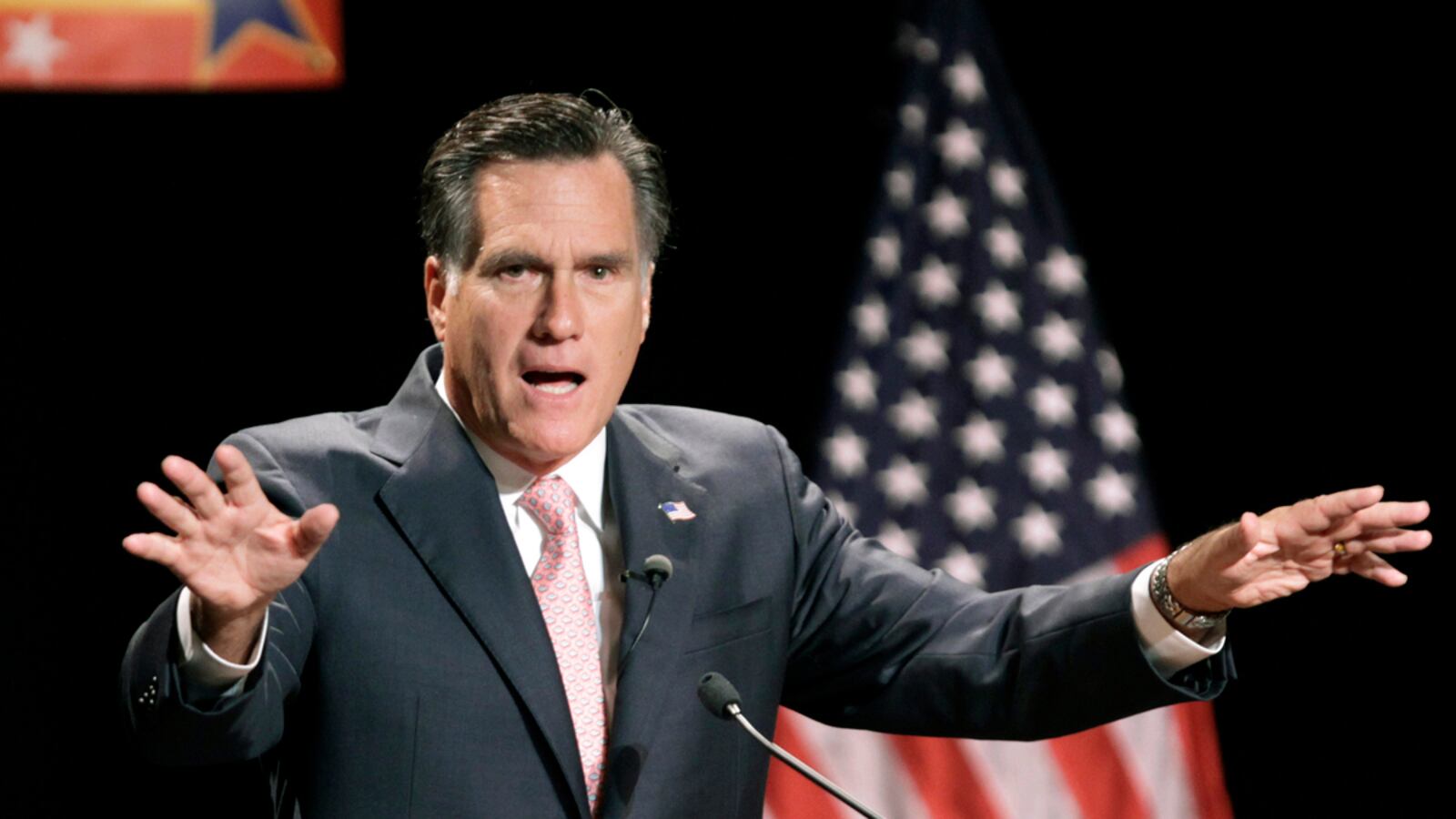Harry Reid isn’t the problem. Yes, the Senate majority leader shouldn’t go around accusing Mitt Romney of paying no taxes unless he can provide proof. But let’s assume that he’s right: that Romney legally evaded paying taxes and parked vast sums in offshore accounts. It still doesn’t matter. It’s irrelevant to Romney’s fitness to be president.
If Romney broke the law, he’s a criminal. If, however, as the Democrats charge, he legally gamed the tax code in order to pay as little money as possible, he’s a typical American. Ask yourself this question: when tax time comes around do you a) ask yourself what’s fair to pay given your circumstances and the country’s needs; b) try to figure out how to pay as little as possible, often with the help of an accountant. If the answer is b, you and Romney basically did the same thing. Sure, he had better accountants and thus likely saved himself more money. But you both put your own self-interest ahead of the country’s, which is what most people do most of the time.
But aren’t presidents supposed to be better than the average Joe? Aren’t they supposed to be, even in their personal lives, exemplars of virtue and good citizenship? No, I don’t think so. It’s hard enough to find a president who will pursue public policies that make the country better. Once you blur the criteria by evaluating a president’s or presidential candidate’s private conduct, you’ve lost sight of what really affects the lives of most Americans. If presidents conducted their public affairs the way they conduct their private ones, then the latter might have some predictive value. But people are too complicated for that. Bill Clinton—and, for that matter, John F. Kennedy—was personally reckless but politically cautious. With George W. Bush, it was the reverse. Clinton mistreated women privately but his policies benefited women nationally. With Bush, again, it was the opposite. Nor is there much evidence that Americans mimic a president’s personal life in their own. Abortion and teen pregnancy rates went down under the philandering Clinton. The latter spiked under Bush.

Sure, sure, you say, but with Romney there really is a link between private conduct and public policy. Here’s a rich guy who, Democrats suspect, paid very little in taxes himself and wants to make it easier for his fellow gazillionaires to pay little or nothing too. Why not use the (alleged) unfairness of Romney’s personal conduct to highlight the unfairness he would foist on America? Because there’s no logical connection between the two, and conflating them diverts attention from the real debate. Romney didn’t (allegedly) avoid paying taxes because of his philosophical belief that rich people shouldn’t pay much in taxes. He avoided paying taxes because he didn’t want to pay much in taxes, or whoever was acting on his behalf didn’t want him to. And that makes him just like most super-rich Democrats. (Liberals don’t rush to pay more in taxes because they’re sympathetic to government spending any more than conservatives rush to join the Army because they’re sympathetic to military action.)
If you make Romney’s policies the issue, you can make a clear distinction between them and Obama’s. If you make Romney’s personal behavior the issue, you’re inviting the Republicans to find some rich Democrat who also didn’t pay very much in taxes and turn the focus from public policy to personal conduct. For instance, Obama. This year the president violated his beloved “Buffett Rule” by paying a lower tax rate than his secretary. When confronted on this point by ABC News, a White House spokeswoman said the discrepancy “is exactly why we need to reform our tax code and ask the wealthiest to pay their fair share.” In other words, don’t hate the player, hate the game. That should apply to Romney, too. Democrats shouldn’t slam Romney for playing a rigged game, they should slam him for wanting to rig it even more.
There’s a final argument for going after Romney’s taxes, of course, one that’s probably more influential than anything I’ve outlined above. Democrats simply want to win, and given their certainty that notions of fair play don’t constrain the other guys, they’d rather be bad winners than good losers, which is how they remember John Kerry and Al Gore. But it’s not true that notions of fair play never constrain Republican candidates. Goodness knows I’m no fan of the GOP, but John McCain rejected his advisers’ pleas to focus on Obama’s relationship with Jeremiah Wright. Romney may be playing footsie with Donald Trump and Michele Bachmann, but he isn’t making birtherism or Islamophobia a staple of his campaign.
The point isn’t that going after Romney’s tax returns is as bad as questioning Obama’s citizenship. It’s not. The point is that in politics, partisans usually assume the other side is more ruthless and dishonest than they are because ruthlessness and dishonesty are often in the eye of the beholder. As a result, it’s important for people on each side to try to avoid tactics they know are wrong, even though they assume the other guys won’t be as scrupulous. Otherwise, they risk turning their opponents into the very monsters they already assume them to be.
This country is in the middle of a profound debate about whether the federal government should try to significantly regulate capitalism. Like many liberals, I’m stunned and appalled that in the wake of Gilded Age-era income inequality, an epic financial crisis, the rise of super PACs, Hurricane Katrina, and the Gulf oil spill, so many conservatives remain convinced that America would be better off if the federal government (excluding the Pentagon, of course) were emasculated further, thus leaving Wall Street and corporate America to do exactly as they please. I think Obama can, and must, win that debate this election season, and in the four years that follow. But how much Romney paid in taxes doesn’t have anything to do with it.






